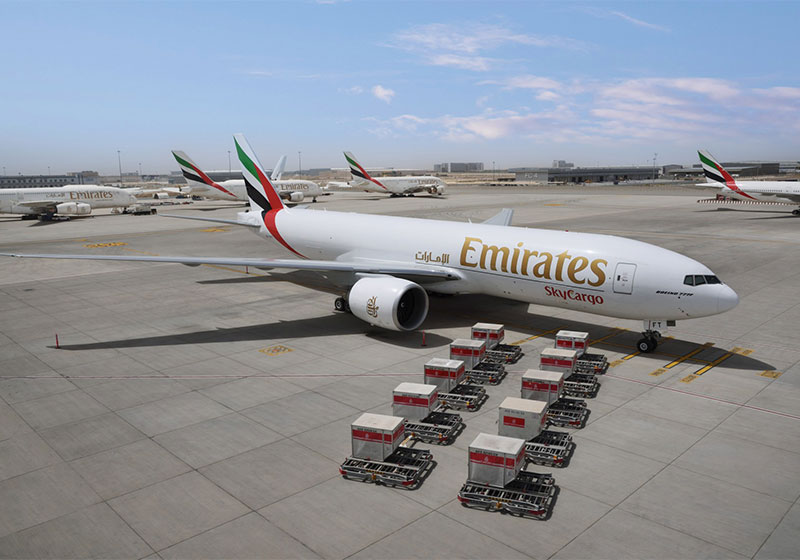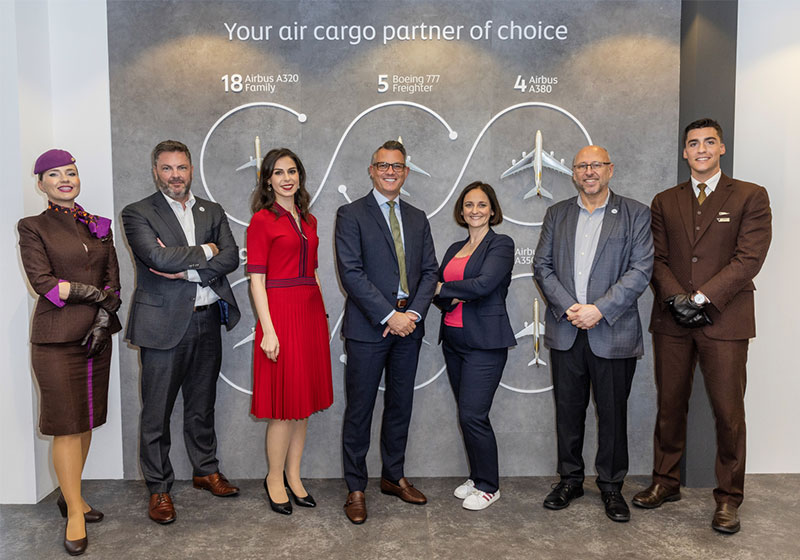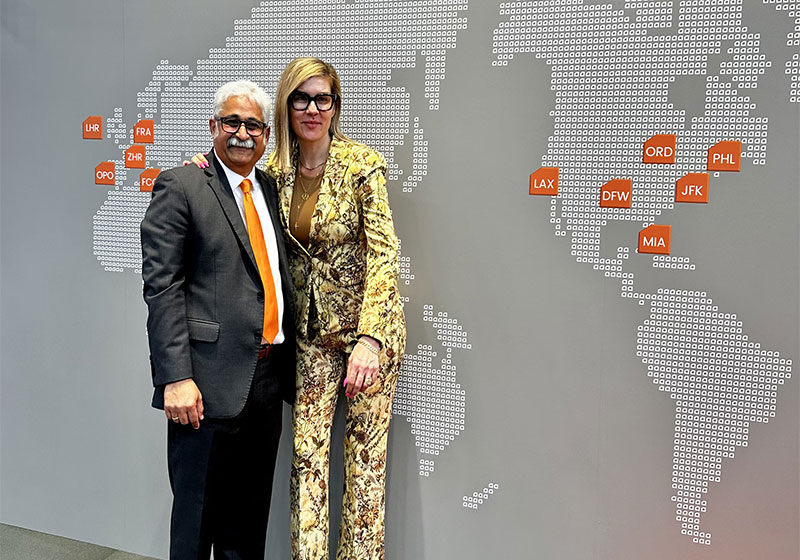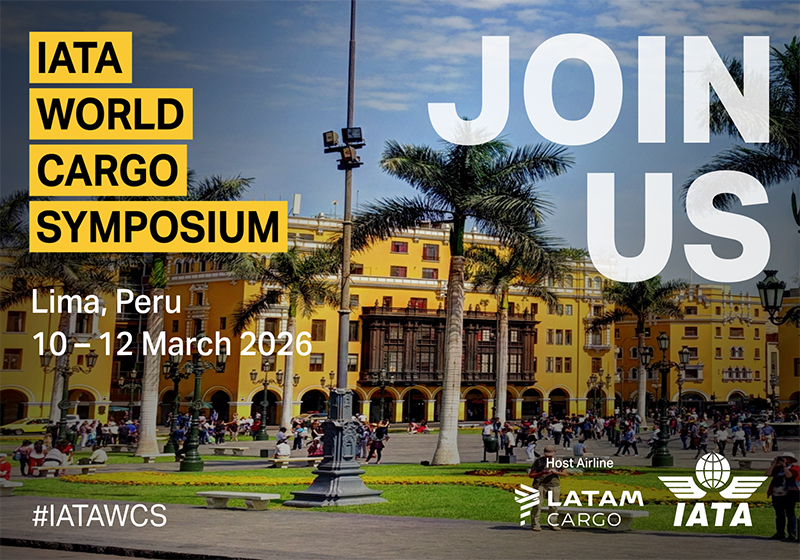The Emirates Group released its 2022-23 Annual Report, reporting its most profitable year ever on the back of strong demand across its businesses. Emirates achieved new record profits, a complete turnaround from its loss position last year.
Both Emirates and dnata saw significant revenue increases in 2022-23 as the Group expanded its air transport and travel-related operations following the removal of nearly all pandemic-related restrictions around the world.
For the financial year ended 31 March 2023, the Emirates Group posted a record profit of AED 10.9 billion (US$ 3.0 billion) compared with an AED 3.8 billion (US$ 1.0 billion) loss for last year. The Group’s revenue was AED 119.8 billion (US$ 32.6 billion), an increase of 81% over last year’s results. The Group’s cash balance was AED 42.5 billion (US$ 11.6 billion), the highest ever reported, up 65% from last year mainly due to strong demand across its core business divisions and markets.
HH Sheikh Ahmed bin Saeed Al Maktoum, Chairman and Chief Executive, Emirates airline and Group, said: "We’re proud of our 2022-23 performance which is not only a full recovery, but also a record result. This achievement would not have been possible without HH Sheikh Mohammed bin Rashid Al Maktoum, UAE Vice President and Prime Minister, and Ruler of Dubai, whose leadership has been critical to our success today and through the years. The architect of Dubai’s progressive economic policies, HH Sheikh Mohammed is also the engine behind the Emirates Group’s trajectory. Without his drive and support, Emirates will be half the size of what we are today.
Amongst its numerous environmental initiatives, a key highlight for Emirates was the successful conduct of a demonstration flight with 100% sustainable aviation fuel (SAF) in one engine of a Boeing 777. This first-in-region initiative contributes to collective industry data and efforts to enable a future of 100% SAF flying. dnata in 2022-23 pledged to invest US$ 100 million (AED 367 million) over 2 years, to improve environmental efficiency across its global business, supporting its goal to reduce its carbon footprint by 50% by 2030.
Emirates’ total passenger and cargo capacity increased by 32% to 48.2 billion ATKMs in 2022-23, as the airline continued to reinstate passenger services across its network in line with the lifting of pandemic-related flight and travel restrictions. In addition to launching services to Tel Aviv, Emirates relaunched flights to six destinations and increased operations to 62 cities across its network throughout the year to serve strong customer demand. By 31 March 2023, the Emirates network comprised 150 destinations across six continents, including 9 cities served by its freighter fleet only.
Emirates received two new 777 freighter aircraft during the financial year. It also phased out 4 older aircraft comprising of 2 A380, 1 Boeing 777-300ERs and 1 Freighter. Its total fleet count at the end of March was 260 units, with a youthful average fleet age of 9.1 years.
Emirates SkyCargo delivered a solid performance, contributing 16% of the airline’s revenue despite a reduction in available capacity as aircraft that were temporarily converted into "mini freighters" during the pandemic returned to full passenger service.
In 2022-23, Emirates’ cargo division reinforced its leadership in cool chain transport, building on the advanced expertise and infrastructure that made it the carrier of choice for the transport of temperature sensitive medicines during the pandemic, and other perishable items.
Emirates SkyCargo maintained its edge in the global airfreight industry by focusing its customers, bringing innovative solutions to the market, and leveraging its fleet and network capabilities. During the year, the cargo division signed commercial MoUs with United Airlines and Air Canada to expand its network reach and capacity for customers; introduced a new digital channel, WebCargo, for customers to directly access and book its flights for their cargo shipments; and launched Emirates Delivers UK, expanding its e-commerce shipping solution to UAE customers.
Emirates SkyCargo also deployed its expertise and capacity to transport relief goods to Pakistan, Turkey and Syria in partnership with Dubai’s International Humanitarian City. With steady air freight demand throughout the year, Emirates’ cargo division reported a solid revenue of AED 17.2 billion (US$ 4.7 billion). This was a 21% decline over last year’s exceptional performance caused by the pandemic.
Freight yield per Freight Tonne Kilometre (FTKM) increased by 3% despite more cargo capacity returned to the global market, but generally remained at high levels compared to the pandemic marketplace due to steady and strong demand.Tonnage carried declined by 14% to reach 1.8 million tonnes, due to the reduction in available freighter capacity for the entire year with the reinstatement of more passenger services. At the end of 2022-23, Emirates’ SkyCargo’s total freighter fleet stood at 11 Boeing 777Fs.






